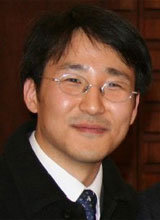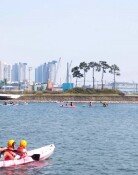Old administration hinders scientific advancement
Old administration hinders scientific advancement
Posted April. 12, 2019 08:16,
Updated April. 12, 2019 08:16

I recently finished writing series articles “Science Essay,” which I had been writing for the Dong-A Ilbo since late 2016. I thank the editorial office for allowing me to write on the newspaper. In retrospect, I wish I was more focused on research in Korea and South Asia rather than English-speaking countries. It was fortunate that I was able to learn about news from various fields of science including biology, mathematics, astronomy, physics, robotics, medical science and brain science.
Korea’s scientific technology is suffering from an extreme merit system, ministry selfishness, inflexible education, lack of creativity and a bad research culture. Some said, “You can sign a deal only when your project proposal includes the term ‘the fourth industrial revolution,’” after the inauguration of the Moon Jae-in administration. The fourth industrial revolution includes existing manufacturing industries, artificial intelligence, internet of things, big data, software, robots and even blockchain and cryptocurrencies. Businesses and research institutes as well as academia are editing their research plans to cater to the government. It is just the same as the time when “Creative Economy” was a big word.
Some said government officials wanted them to shift into a smart factory even though they currently had no internet at the site. Researchers put research and development on the back burner to pay more attention to administrative and accounting works. It is hard to tell if it is scientific technology or scientific administration. Things are even more disastrous in education. According to educational statistics, as many as tens of thousands of adolescents are out of school. Calling them “out-of-school adolescents” does not even hold water because the boundaries such as space, time, teachers and students are blurring. It is hard to expect creativity to bloom in today’s rigid education system.
It is understandable that no Korean scientist has ever received the Nobel Prize, Fields Medal or Abel Prize. Many great Korean scientists shined through a great deal of efforts. Korea is devoid of decent research systems and culture, fellowship and cooperation. The old school ties, regionalism and nepotism still haunt scientific circles. Joseon Dynasty’s great scientist Jang Yong-sil was born as a slave in the year of 1390 and unfortunately nobody knows even how he died. Contemporary Western scientists advanced scientific technology to the level of art. They opened a new chapter of modern science through cooperation. The Curies received a Nobel Prize by discovering radium and polonium. Crick and Watson revealed a double helix structure and won a Nobel Prize in Physiology or Medicine. Apple co-founder Steve Jobs had a great colleague Steve Wozniak. Google that has become the center of all information in the world was a product of Larry Page and Sergey Brin.
Korea’s scientific technology community should pay more attention to the fundamentals of science. Science is based on creativity and healthy criticisms, not on politics, administration or ministry selfishness. Creativity and criticisms are the basis of cooperation. Korea’s scientific technology will lose steam if researchers only follow the directions from the government, bosses and professors.
Eun-Taek Lee nabi@donga.com







